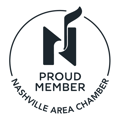In our last post, we covered why networking is so critical to your job search and where to find your community. Now we’ve reached the step that can feel the most intimidating: how do you actually start a conversation?
Many people worry that networking will feel transactional or awkward, especially when they're on the job hunt. The key is to shift your mindset. Your goal isn’t to get something, like a job lead, it’s to learn something and to start building genuine, long-term professional relationships. Networking is a long-term investment in your career. The connections you make today can lead to mentorship, collaboration, friendships, and yes, opportunities for your first, second, and third job in tech.
The following steps aren't just one-time tactics for your current job search; they are the fundamentals of building a strong, supportive network. Turning these tactics into habits will serve you your entire career and give you access to the “hidden job market.”
Lead with Curiosity
When you meet someone, whether in person or online, your first goal is simply to have a real conversation. Instead of leading with your own goals, ask about the interesting problems they're solving, what they enjoy about their work, or a recent project they shared. Leading with genuine curiosity is the best way to start building a relationship.
Resource: For great, non-generic questions to ask, check out this list of conversation starters from TeamBuilding.com: 102 Best Networking Icebreaker Questions for Work
Here are a few of our favorites to break the ice:
- What is something that surprised you about this industry?
- What is your favorite kind of music to listen to while working?
- What is your favorite part of your job?
- What’s your favorite book or podcast?
- When you see your job or industry in movies, which inaccuracy bothers you the most?
- What is the thing that most excites you about your job or industry?
- What was the best interview you have ever been on?
Tip: When you talk to someone, specifically ask for their opinion or advice on a challenge you're facing (e.g., "I'm really eager to grow and add as much value as I can to a team. What are the skills or habits that you’ve seen separate a good junior developer from a great one?"). People are naturally inclined to help, and when someone gives you advice, they become invested in your success.
Tip: If you’re talking to someone who’s familiar with NSS, they’ll likely know you’re looking for a job just by telling them you're a recent graduate. The NSS community wants to help!
Master the Informational Interview
An informational interview is really just a chance to ask for someone's story: how they got started, what they’ve learned, and what advice they have. When you reach out to an NSS alum or another professional on LinkedIn, be specific with your request and respectful of their time. A targeted request for a brief informational interview or conversation is much more likely to get a response than a vague "can I pick your brain?"
For example: "Hi [Name], I'm a recent NSS grad and was so impressed by your work at [Company] that you shared on LinkedIn. If you have 15 minutes in the coming weeks, I'd love to hear a bit more about your experience there."
Resource: Indeed has a great guide on how to prepare for and conduct a successful informational interview, including 30 questions you can ask. Read it here.
Tip: Make sure you arrive prepared for your informational interview. Prepare 3-5 thoughtful questions and dress your best. A great final question to ask is, “Is there anyone else you think I should connect with?” This shows you value their insight and can help you expand your network.
Always Follow Up
A simple "thank you" note after a conversation at a networking event or an informational interview is a professional courtesy that shows you appreciate their time. To make it even more memorable, reference something specific you discussed. If you talked about a particular article or resource, share a link to it in your note. This shows you were listening, adds immediate value to the connection, and keeps the conversation going.
Resource: This article from The Muse provides templates and examples on how to write a follow up note that stands out. 5 Email Templates That Make Following Up With Anyone Way Less Awkward
Tip: Send your follow-up note within 24 hours while the conversation is still fresh. To stay organized, use a simple spreadsheet to keep track of who you met, when you followed up, and any key details from your conversation.
Make Outreach A Regular Habit
Building a network is a numbers game to some extent. So it's important to set realistic expectations. You won't get a response to every message you send, and that's perfectly okay. People are busy and inboxes are crowded. Let some time pass and then try them again! The key is consistent, thoughtful outreach.
Don’t limit yourself to just a few outreaches. The more people you reach out to, the more conversations you'll have, and the less you'll sweat the messages that go unanswered. Focus on making outreach a regular habit, and celebrate the connections you do make.
Building Your Professional Community
Leading with curiosity, asking for someone's story, and following up thoughtfully are the foundational actions for building your professional community. This network isn't built from a single meetup or one great conversation; it's the result of making these small, authentic efforts a consistent habit. While this practice is essential for your current job search, its true value will grow over months and years, leading to mentorship, friendships, and opportunities you can't yet imagine.
Building this foundation takes effort, but you don't have to do it alone. And speaking of support, you've got a whole team in your corner. In our next post, we'll cover all the ways the NSS support system is here to help you succeed.







